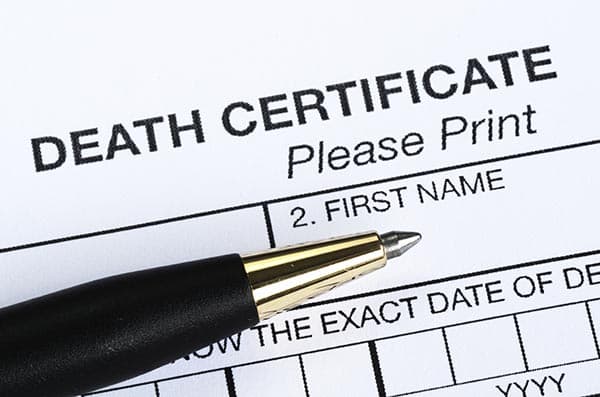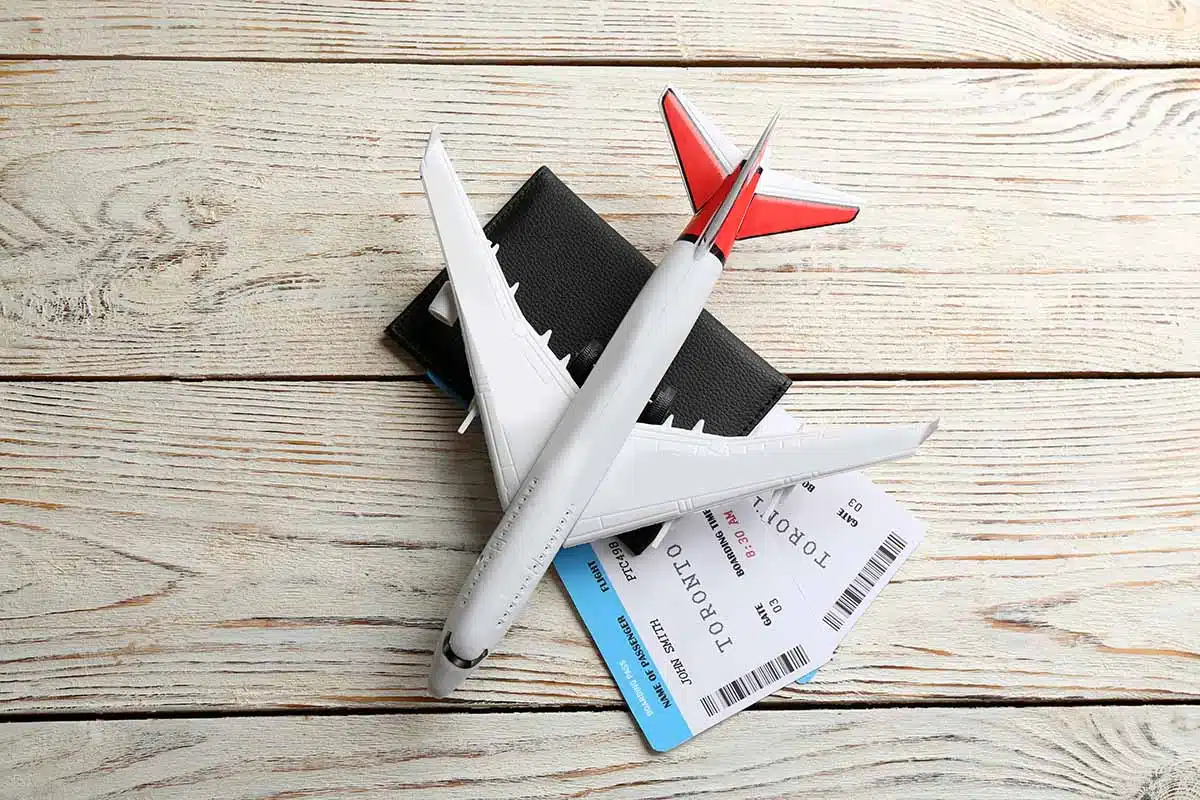If you are in the market for a last-minute flight and you’re traveling with an elderly person or someone who’s chronically ill, you may be wondering what will happen to their airline ticket if they die. Will it be refunded? Can you give it to someone else? What about the taxes and fees that were paid when booking the flight?
When someone passes away, the airline will typically refund the ticket for flights that have not yet departed. However, some airlines don’t offer bereavement refunds at all.
Airlines have different policies on how they handle this situation. Therefore, it’s advisable to contact them directly before purchasing your tickets. In this blog post, we cover all of these questions and more! So, let’s jump right in. Shall we?
Do Airlines Reimburse for Death in Family?
You’ve probably heard the horror stories. A family member dies, and their airline ticket is non-refundable, so they lose thousands of dollars! Therefore, it’s only natural to wonder if your airline will reimburse you in the event of a death.
Fortunately, airlines have a compassionate side that allows them to offer bereavement refunds for flights that haven’t departed yet. It isn’t just a refund in some cases – you may even get a travel voucher with change fees waived.
The following are the bereavement policies for major U.S. airlines:
Delta Airlines
Delta Airlines offers bereavement fare discounts on both domestic and international flights in the event of an immediate family member’s passing or imminent passing.
However, the price tends to vary and is subject to availability. However, if you can book one, it offers some flexibility on the best published fare on the route you’re taking. Besides, if you need to make unexpected changes to your travel plans, they waive the change fees.
Delta bereavement flights are, however, only offered to SkyMiles members. You can enrol on their bereavement policy page to get access to these offers. Here, you’ll also find out what the airline considers “an immediate family member,” the documentation they need from you to qualify you for a discount, and the terms and conditions.
American Airlines
Does American Airlines offer bereavement flights? American Airlines may waive change fees if you need to make a change due to an unforeseen circumstance or emergency. The airline used to provide bereavement fares, but they stopped this service in 2014.
WestJet
WestJet not only offers bereavement fares but also “civic funeral fares.” Civic funeral fares refer to flights after the death of a government official, police officer, firefighter, emergency personnel or military leader who died in the line of duty.
The airline’s bereavement discount is available on Econo, EconoFlex and Premium fares. However, you must complete the flight within 14 days. The airline will ask for proof of your situation for you to qualify for the discount, and that may also waive change fees.
Lufthansa
Lufthansa offers special fares in the event of the death of a loved one or immediate family member: spouse, domestic partner and children. As with most airlines, you’ll need to contact their reservations line to determine the fare conditions, whether you qualify and how soon you need to book the flight.
Air Canada
The airline has bereavement flights that offer a discount to the loved ones of a deceased passenger or passengers travelling during a family emergency.
However, you must take the flight within seven days of booking an international flight and ten days for a domestic flight.
Air Canada also has limitations on how long you can stay in the country of travel. They allow a maximum of 30 days for international travel and 60 days for domestic. In addition, their bereavement discount doesn’t apply to business class, North America Basic Fares, premium economy class, and codeshare flights.
Southwest
Southwest doesn’t offer any bereavement discounts. However, they may waive the change fees if you need to alter your travel plans due to a family emergency.
JetBlue
The airline doesn’t offer bereavement discounts either. If you’re traveling with JetBlue, your best bet is to purchase a refundable ticket. This way, if your plans change, you can cancel and get a refund without incurring additional costs.
However, it’s advisable to read their terms and conditions on the refundable fares before you buy a ticket so that there are no surprises.
United
United used to offer a 5% bereavement discount, but they ended the service in 2014. Currently, they only refund change fees for flights arrangements affected by family emergencies.
You can apply for a refund online. The airline will require you to provide evidence of the emergency and proof of relationship with the deceased.
Can an Airline Ask for a Death Certificate?
Most airlines require a death certificate as proof of the bereavement. However, a few carriers may ask for alternative confirmations such as obituary copies or law enforcement reports depending on their policy and local regulations.
The bereaved often find this requirement offensive, but it is standard practice in the industry. You must act quickly because they usually require this documentation within a short time frame after the demise of your loved one.
As a rule of thumb, it’s advisable to always carry your booking confirmation during travel along with any required identification documents to avoid hassles at check-in.
A company representative will be more than happy to help you with the refund process, so don’t hesitate to contact them directly for any clarifications or questions that may arise before and after your purchase of a ticket.

Airline Regulations for the Ticket if Death Occurs
Airline regulations in the event of death vary from one carrier to another. Some airlines require a death certificate, while others may allow representatives from the funeral home or airline staff at your destination airport to fill out an affidavit instead.
Additionally, most airlines offer bereavement fares for immediate family members and close friends who need to quickly return from their loved one’s final resting place to attend the funeral. However, some airlines don’t have this offer. Instead, they offer a full refund of the ticket along with a waiver of change fees if they are notified within a specified period after booking.
Airline regulations in cases where passengers die before their flight has taken off also vary from one carrier to another. In most instances, airlines will not refund or reschedule your non-refundable tickets under any circumstances and may require a death certificate to waive the change fee.
Generally, an airline will apply three types of rules if a passenger dies before their flight.
- Provide a full refund: The airline will provide a full refund of the ticket along with a waiver of change fees.
- Waive change fees: The airline will waive the change fee for the ticket if the passenger dies before the departure date of their flight.
- Offer bereavement fares: These are discounted fares offered to passengers who’ve lost a loved one and wish to attend the funeral.
Most airlines will require a death certificate or proof of the unfortunate event and relationship with the deceased before processing bereavement benefits. Most airlines require a copy of the death certificate to process your refund or waiver request. Some airlines may also require proof of relationship.
Families are also allowed to book or change a reservation for the deceased passenger without paying any fees to attend funeral services. However, most airlines will require proof of death to process these requests at no charge. Therefore, it is always advisable that you check with your airline before making changes to flights after the death of a loved one.
How Does Bereavement Work for Flights?
Bereavement fare refers to a reduced fare that is offered for travel when a passenger dies. Every airline has its own bereavement policy, but the general rule of thumb is that it usually involves waiving any penalties or fees if you need to change your flight after someone close to you passes away.
To ease this burden, most airlines will offer coupons, flat-rate discounts, lower prices, or waive some charges, among other things. But how does it work?
Most people don’t understand how bereavement flights work because they’re used to booking flights in the traditional way or online if it’s urgent. However, you should know that each airline has policies on their website about bereavement flights. And in most cases, you won’t find this information on third-party websites. You’ll have to call the airline directly to determine what you can do and how much it will cost.
For instance, in the case of Delta Air Lines, you’d have to call them as soon as possible and provide a copy or an obituary to take advantage of their bereavement fares. You can also show proof that required immediate travel and that your funeral arrangements were made at least one day before departure time.
Unfortunately, most airlines stopped offering bereavement fares in 2014. However, you can still find low-cost deals with a bit of know-how. Here’s what you need to do:
- Choose an airline that offers the best deals for your destination. Check their website and compare the cheapest flights to a date when you can go, but don’t book anything yet!
- Call them up and tell them that you want to buy a ticket but unfortunately heard about the death of someone close only today. That’s why you need to travel as soon as possible. To prove it, provide a copy of the deceased’s death certificate and proof of your relationship. It may also be beneficial to have other information like the name of your loved one’s doctor, memorial service dates, and other crucial details in hand before making the call.
- Know your travel dates and budgets. It is crucial to go through several websites for this step. Compare the cheapest flights and get the best possible price on your desired day of travel.
- Book your flight and travel. Once you have your flight booked, you will need to go through the airline’s policy on ticket transfers. Most airlines do not charge a fee for transferring an unused ticket if it is done within 24 hours of booking. If unsure about policies, call customer service and ask before finalizing anything!
Wrapping Up
There you have it; a detailed guide of what happens to airline tickets if someone dies. If you have family, friends or loved ones who frequently fly, it is always good practice to make sure they understand the policies in place and how to best protect themselves from financial loss when tragedy strikes. There might be some other scenarios as well when one has to choose is it better to cancel a flight or not show up.


